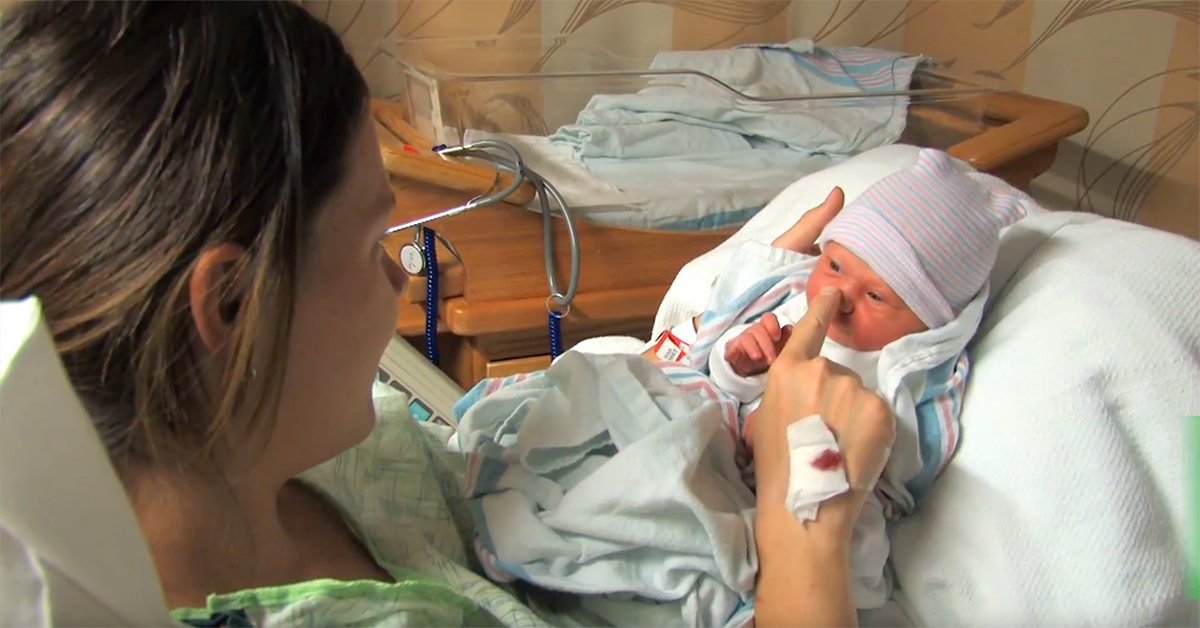Childbirth can be wonderful, but it can also be difficult and tiring. Planning some things ahead of time can make the experience easier.

Think About Where You Will Give Birth
- Most babies are born in a hospital. Try to visit the rooms for labor and delivery.
- Ask if there is a birthing center, which is usually more home-like and comfortable.
- Ask if there’s someone to help you start breastfeeding, such as a lactation consultant or nurse.
- If you want to have your baby at home, talk to a midwife or doctor. They can help you decide if it is the right choice for you.
- Find out if your health insurance covers home births.
- If you are in labor, you can go to any hospital emergency room, even if you do not have insurance.
Learn About Childbirth
Childbirth classes are a good way for moms and dads to get ready for the birth and meet other parents. You will learn about positions for labor and birth and ways to manage pain. Ask your hospital about childbirth classes.
C-Section (Cesarean Section)
Some women need to deliver by C-section. For example, your baby may be too big to be delivered through your vagina. If your doctor recommends a C-section, ask why it might be right for you. Even if you have had a C-section before, you may be able to have a vaginal birth now. No matter how you give birth, ask to hold your baby as soon as possible.

Ask to Hold Your Newborn
Holding your baby skin-to-skin right after birth helps you both feel safe and calm. It also helps your baby start breastfeeding. If you will breastfeed, ask to feed your baby within an hour after birth. Nurses and lactation consultants can help you. It is best if your baby can sleep in the same room with you at the hospital. This is called “rooming in.” If your baby is in intensive care, be with him as much as you can. Ask if you can breastfeed or pump your milk to feed him.

Newborn Health Care
- Newborns should get their first hepatitis B shot in the hospital. See Healthy Children for more about vaccinations.
- Ask if your baby will need extra vitamin D while you are breastfeeding.
- All babies in Arizona are tested at birth for hearing problems and certain medical conditions. If your baby has a problem, your doctor will help you find treatment. For more information, contact Newborn Screening.
Going Home with Your Baby
- Arizona law says you must have a car seat to take your baby home from the hospital. For more about car seats, see the Infant Safety page.
- It is common to feel tired and have some mood changes in the first week or two after your baby is born. If these feelings are severe or last longer, talk to your doctor. To learn more, see the Emotional Health page.
THINGS YOU CAN DO
- Ask your employer about Family Medical Leave. You may be able to get up to 12 weeks of unpaid time off work without losing your health benefits or your job. Ask your employer or contact the U.S. Department of Labor.
- Talk with your doctor about what kinds of treatment you want when you are in labor and delivering your baby. You can write these wishes down and share them with the people who will be with you.
- Plan to have someone stay with you during labor and delivery, like a partner, relative or friend. A midwife or a doula can also help. To learn more about doulas, see DONA International.
- Start to look for a doctor for your baby (a pediatrician) before the birth. Babies need regular check-ups starting in their first month, and it can take a while to find a doctor.
The First Things First Parent Kit was developed in partnership with Health Research for Action/UC Berkeley. © 2018 The Regents of the University of California. Additional video, graphic and other content © 2018 First Things First. All rights reserved.





